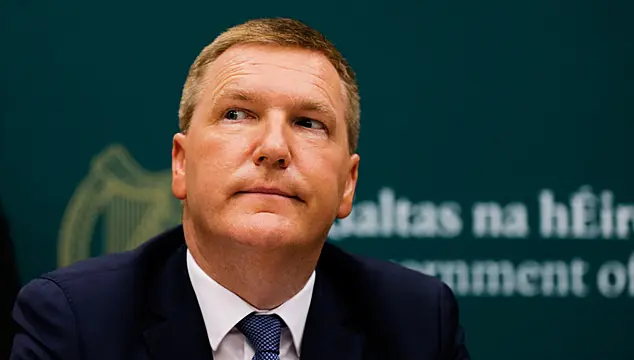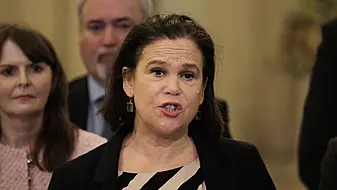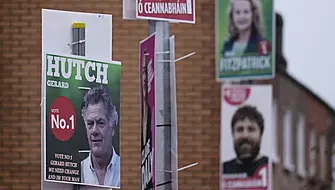It is “blindingly obvious” to put “enormous” windfall corporation taxes into a long-term savings fund to protect against an ageing population and other structural changes, Minister for Finance Michael McGrath has said.
Mr McGrath said windfall corporation tax receipts are estimated to total €12 billion this year.
“It will not last indefinitely into the future. We know we’re going to be meeting enormous costs down the line.
“We have to make provision for the future.”
He said there had been an effective doubling in corporation tax revenues since before the Covid-19 pandemic, which Mr McGrath said suggested was evidence of windfall gains.
Minister for Finance @mmcgrathtd has today published 'Future-proofing the Public Finances – the Next Steps' which outlines some of the merits of establishing a long-term public savings vehicle in Ireland.
Here's more info on the fund and how it would work 👇 pic.twitter.com/060GAHKP6M— Fianna Fáil (@fiannafailparty) May 10, 2023
He said there was also a fivefold increase last year compared with a decade ago.
Mr McGrath said there was a growing dependence on these receipts and a growing concentration of them were from a small number of companies.
The minister said the boom in receipts was directly linked to profitability and there was real strength in tech, pharmaceuticals and life sciences.
He said profitability was also linked to intellectual property and royalty payments.
Speaking at the launch of a scoping paper on “future-proofing” the public finances, he said there was a need to plan for medium to long-term challenges such as the ageing population and not just “the current political and fiscal problems that we may face”.
“In headline terms, it is fair to say that our public finances are currently in a sweet spot,” he said.
The Department of Finance is projecting an expansion of the surplus in coming years, assuming no major shock to the economy.
Minister @mmcgrathtd has today published analysis entitled 'Future-proofing the Public Finances – the Next Steps'.
This scoping paper outlines some of the merits of establishing a long-term public savings vehicle in Ireland.
Read more: https://t.co/MVJT8NPVT0 pic.twitter.com/eXqZc2TmZd— Department of Finance (@IRLDeptFinance) May 10, 2023
“Digging below the surface however, it is clear that fiscal vulnerabilities are building up.
“The budgetary surplus is entirely due to the extraordinary strength of corporation tax receipts in recent years, a significant portion of which cannot be explained by our economic fundamentals.
“We also know that these receipts are highly concentrated in a small number of firms and sectors.
“This concentration risk is stark, the top ten largest corporation tax payers account for around one euro in every seven euro of all tax collected.”
Mr McGrath said that at the end of the decade, public expenditure will be seven to eight billion euro higher each year simply because of increased age-related spending.
He said Government will also need to finance a climate and digital transition and this provided a strong case for a “longer-term savings vehicle”.
Mr McGrath said this would ensure the windfall receipts would not be used for permanent expenditure commitments or tax reductions.
However, he said that even if all windfall receipts are saved it would not fund all ageing costs and therefore other structural reforms would be necessary.
“One statistic that I think is quite startling is that ratio of people who are working age to pensioners.
“At the moment its about one to four and in the coming decades that will halve to two to one.”
He also warned that this was based on the department’s best forecasts but “a lot can change” and the windfall receipts were not guaranteed.
In relation to capital expenditure, Mr McGrath said the economy is running “pretty much at full tilt” with unemployment at less than 4 per cent.
He said in providing extra capital to individual sectors, the Government had to be careful of the risk of “overheating”.
However, he said there was still room from recurring receipts for a significant budget package.
“So in the budget in the autumn, there will be a tax package, there will be a social welfare package, there will be targeted improvements and public services will see a further increase in the public capital programme.”







